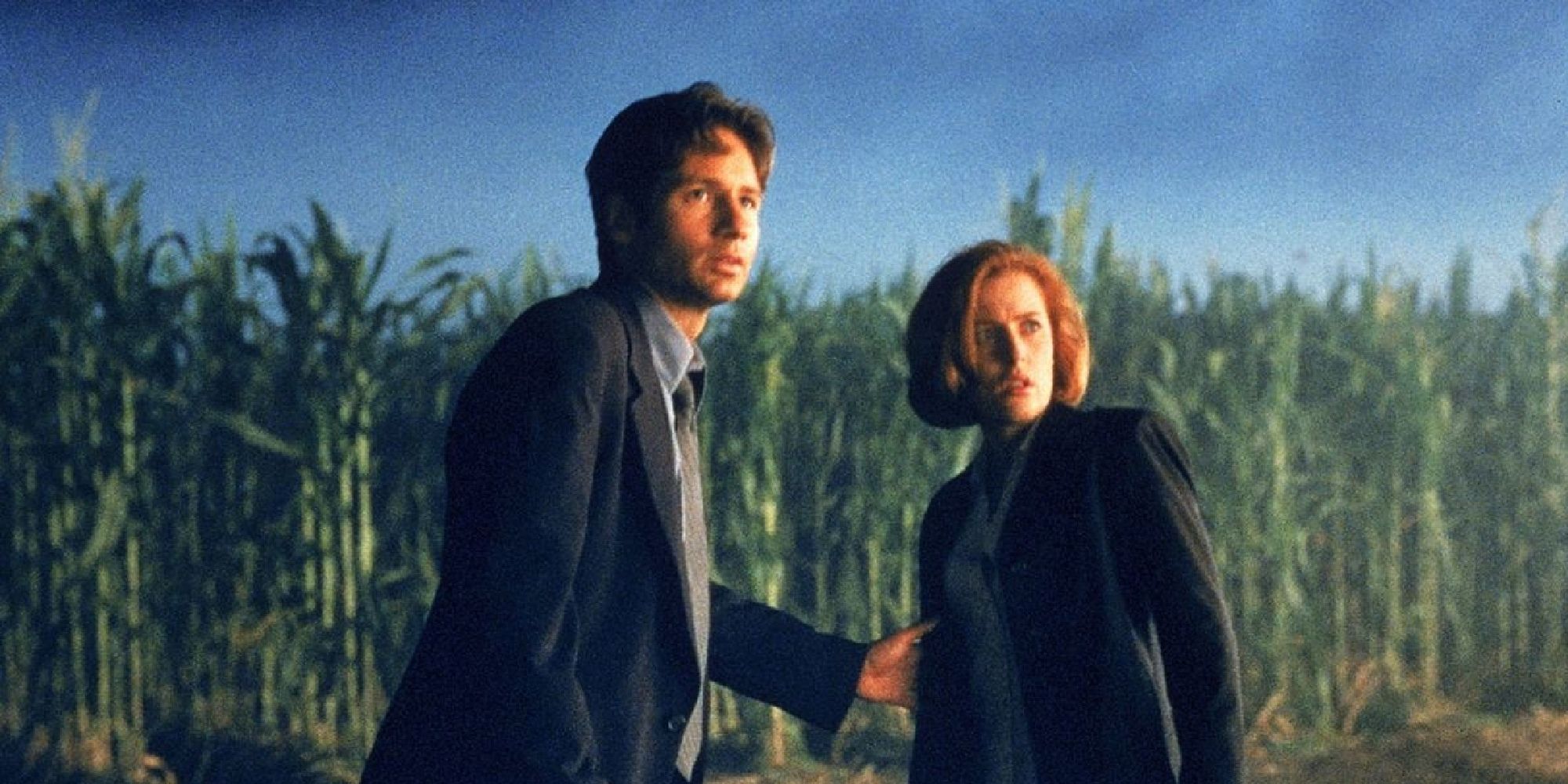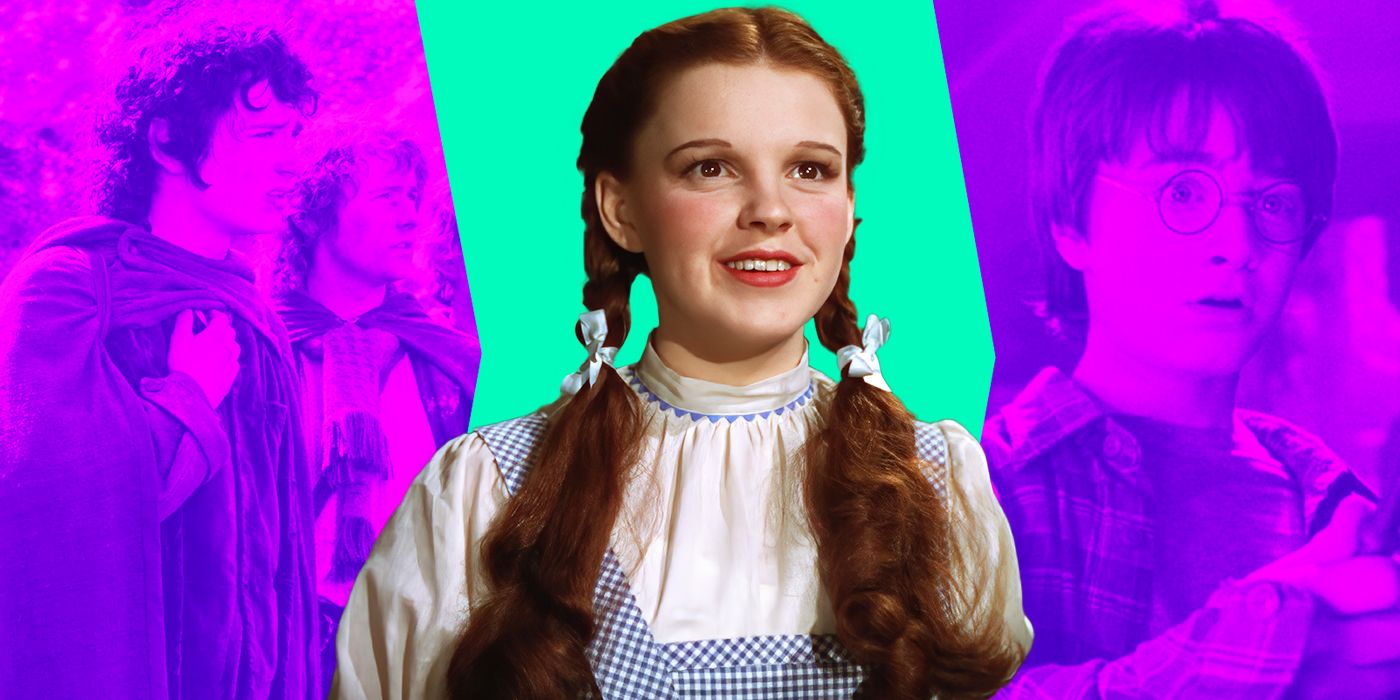The Big Picture
- “I Want To Believe” may be a popular phrase associated with The X-Files, but the show actually promotes rigorous investigation and skepticism, not blind belief.
- “The Truth Is Out There” implies that the truth is not easily accessible and widely believed. Mulder and Scully believe in the supernatural because they have sufficient evidence to prove their existence.
- Mulder and Scully are not blind believers or skeptics. They investigate, gather evidence, and seek objective reality, making them talented investigators rather than believers in superstition.
If any one phrase is most associated with The X-Files, it must be “I Want To Believe.” These words, coupled with the image of a flying saucer, adorned dorm rooms across America during the series’ highly successful run on the Fox network in the 1990s. But do these words accurately express the overall theme of the show? Some critics, such as noted skeptic Richard Dawkins, maintain that The X-Files encouraged its audience to blindly believe in far-fetched concepts such as the paranormal and flying saucers. Actor William B. Davis, who plays the Cigarette Smoking Man, has questioned Dawkins’ interpretation of the show. And he was right to do so. In fact, The X-Files actively promotes rigorous investigation and skepticism, not blind belief.
Consider the second-most popular phrase associated with the show: “The Truth Is Out There.” This implies that the truth, whatever it might be, is not staring us in the face. It’s not easily accessible and widely believed by society. Instead, it’s hidden away somewhere, accessible only to those willing to search for it. This, despite The X-Files’ undeniable popularity among those who believe in the supernatural, is the true message at the heart of the show. Agent Fox Mulder (David Duchovny) might believe in werewolves, aliens, vampires, and monsters of all shapes and sizes. But he believes in them only because, in his fictional universe, he has sufficient evidence to prove their existence.
Mulder and Scully as Agents of Belief and Skepticism
Agent Mulder has long been considered the proponent of “belief” in the show. It’s Mulder who is always trying to convince skeptical Agent Dana Scully (Gillian Anderson) that there is something extraordinary happening every time they set out to investigate a case. Scully, by contrast, is the voice of reason, logic, and science. She is hesitant to believe that there isn’t some relatively simple explanation for the bizarre crimes she witnesses. Scully keeps Mulder’s bias toward belief in check. Mulder opens up Scully’s mind to new ways of interpreting reality. Together, they’re the perfect balancing-act duo, like Paul McCartney and John Lennon or peanut butter and jelly. Because Mulder is nearly always right, viewers have become convinced that the show advocates for his view of the world. But this interpretation fails to take into consideration the fictional universe that Mulder and Scully inhabit.
Okay, maybe it’s not that fictional of a universe. But it is a world in which both characters have good, empirical reasons to support their belief in the supernatural. Mulder may have a bias toward belief, in part due to his suspicion that his sister was abducted by aliens, but he would be a fool to deny the existence of aliens and the supernatural given all that he’s witnessed. Scully may be reluctant to go along with Mulder’s “spooky” ideas, but she eventually comes to realize that he’s right more often than he’s wrong. That’s because, in The X-Files, she has plenty of evidence to support her conclusions.
Neither Scully nor Mulder blindly believes in anything. They investigate a case, witness things firsthand, receive corroborating testimony, gather physical evidence, and extensively document (as best they can) all the extraordinary things they encounter. This is not typically how one arrives at believing ridiculous theories. In our world, Mulder and Scully would never be convinced that some random YouTuber is correct about something. Rather, they would go meet with the YouTuber to investigate the claims and determine the truth. This makes them relentless seekers of objective reality, not blind believers in superstition.
‘The X-Files’ Seeks the Truth
Throughout The X-Files, there are numerous examples of Mulder and Scully being told, during their investigations, of some ridiculous theory that turns out to be factually incorrect. In “The Post-Modern Prometheus,” a woman tells Mulder and Scully that she has been attacked and impregnated by a grotesque monster. In fact, it was a human being (albeit one who was experimented upon). In “X-Cops,” Mulder and Scully are informed by a couple Los Angeles residents that they were attacked by a werewolf and Freddy Krueger. In fact, it was a shape-shifting entity. In “Red Museum,” a series of kidnappings are alleged to be the evil doings of a local cult, but in fact it’s alien DNA that is to blame. In “Humbug,” it’s alleged that the Fiji mermaid is murdering people, but it’s actually a human being hiding in plain sight. In “D.P.O.,” the agents are told that mother nature is to blame for a series of lightning deaths, but it’s really a teenage boy with extraordinary powers. As we can see, again and again, Mulder and Scully do not blindly believe any theory that sounds somewhat plausible. Instead, they seek out evidence until they uncover the truth. In other words, their skepticism and commitment to rationality are what make them such talented investigators.
Of course, having said this, The X-Files is celebrated by believers in the paranormal as one of the few mainstream shows to present their beliefs as fact. These believers, undoubtedly, embrace at least some conspiracy theories. But that’s not how Mulder and Scully arrive at their conclusions. They form theories only based on real evidence, not blind conjecture. This significant, albeit nuanced, distinction is what makes The X-Files more about discovering the truth than blindly believing in conspiracies.





